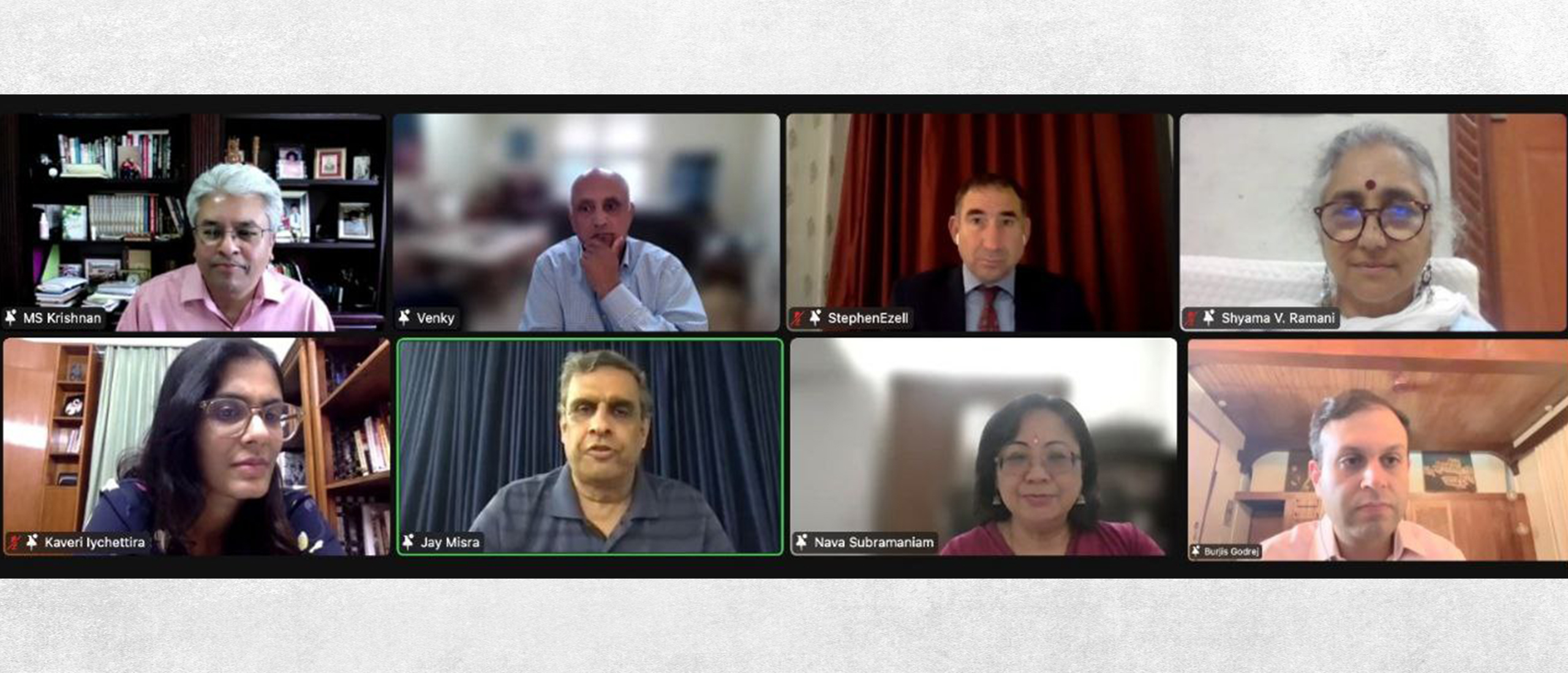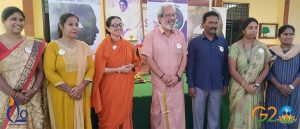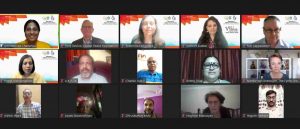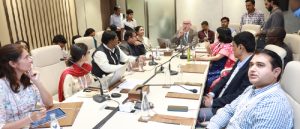On May 3rd, TST group of C20 organized a webinar moderated by Prof. Jay Misra from Amrita University (Former Adjunct Professor – Stanford and MD with Soros & Capital Group on Technology Investing.) where prominent speakers gathered to discuss on “Tech Policies for Empowerment”.
Mr. Stephen Ezell presented on the increasingly common global healthcare challenges. He also how developing country innovators are tackling on-the-ground local and global health challenges. Mr Ezell provided a list of policy recommendations including – Collaborating with intl. partners in developing national health strategies, prioritizing ICT infrastructure development alongside investments in digital literacy, ensuring availability of essential medicines in public health clinics, recognising the broad economic impact of healthcare delivery.
Dr. Shyama Ramani emphasized that technology policy doesn’t work well in isolation. She stated that science, tech and innovation policy must be broken and then melded to fit challenge through engagement. She presented on some valuable and key messages on Sanitation Technology Policy and discussed the areas needing attention to better support policy.
Mr. Burjis Godrej made several policy recommendations tailored to the Indian scenario. His suggestions covered areas like Animal Pandemic Preparedness Mission, R&D subsidies for agriculture, Data repositories for surveillance, Development of climate finance products with incentives for adoption, Dedicated state level agro tech dept, etc.
Dr. Venky Narayanamurti reminded us that although there’s much to be learned from the United States and the Western world, what applies to India will be different because of our culture and history. He stated that it’s important that we have a full spectrum in education where you learn by doing, without separating science from technology or science from engineering.
Dr. Kaveri Iychettira talked about some of the big challenges that we need to address as a research community and as a policy making community as well in the energy sector and electricity sector in India. She emphasised that we need to design policies which address this cost recovery issue in order to help us integrate more renewables. She also underlined the importance of exploring questions that helps in designing an equitable transition energy transition for India and other developing countries.
Dr. M.S. Krishnan started off by presenting the wedge that pandemic imposed and then suggested some major challenges and recommendation in educational policies. He also discussed the dire need for equitable education that’s across the different strata of economics of society. He reminded that instead of thinking about education in terms of the present, we need to think about infrastructure for lifelong learning because the generative AI, we have to be constant learners throughout our career.
Speakers
- Dr. Venky Narayanamurti – (Bootstrap for Climate change), Founding Dean of SEAS, Harvard Director of the Science, Technology and Public Policy Program at Harvard’s Belfer Center, Former Foreign Secretary NAE.
- Mr. Stephen Ezell – (Life Sciences), Vice President, Global Innovation Policy and Director
- Dr. M.S. Krishnan – (Education), Accenture Professor of Computer information systems & Professor of Technology & Operations, (Pralahad co-re-searcher on BOP) U of Michigan.
- Dr. Kaveri Iychettira – (Electricity & Energy), IITD School of Public Policy
- Dr. Shyama Ramani – (Water & sanitation), UNU-Merit Empowerment and Innovation. Technology policy
- Mr. Burjis Godrej – (Agriculture & Food), Godrej Agrovet, Tech policies for Agriculture




